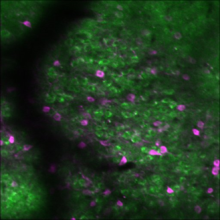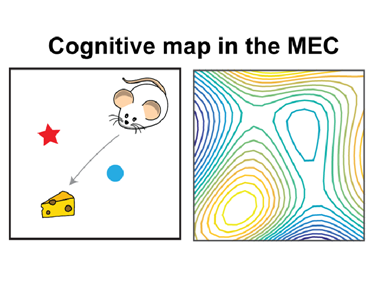Spatial navigation is one of the most fundamental functions of the brain. Our research is focused on the neural basis of spatial navigation and memory, with the ultimate goal to uncover the fundamental principle of spatial cognition and the cause of related neurological disorders.
We are primarily interested in the medial entorhinal cortex (MEC), which plays a key role in spatial representation and episodic memory and is closely related to Alzheimer’s disease. We use mice as model organisms and study various aspects of the MEC in spatial cognition using optical, behavioral, computational, and molecular approaches


PRINCIPAL INVESTIGATOR
Yi Gu, Ph.D.
Dr. Gu received her B.S. and M.S. degrees from Tsinghua University, and Ph.D. degree from Johns Hopkins University. Her Ph.D. work in Dr. Richard Huganir’s laboratory was focused on the molecular and cellular regulation of neurotransmitter receptor trafficking.
Dr. Gu was trained as a postdoctoral fellow in the laboratory of Dr. David Tank at Princeton University, where she investigated the functional mechanism of the medial entorhinal cortex during spatial navigation by combining in vivo imaging with virtual reality behavioral paradigms. Dr. Gu joined NINDS as an investigator in 2019. Her research aims to understand the neural basis of spatial navigation and memory.



